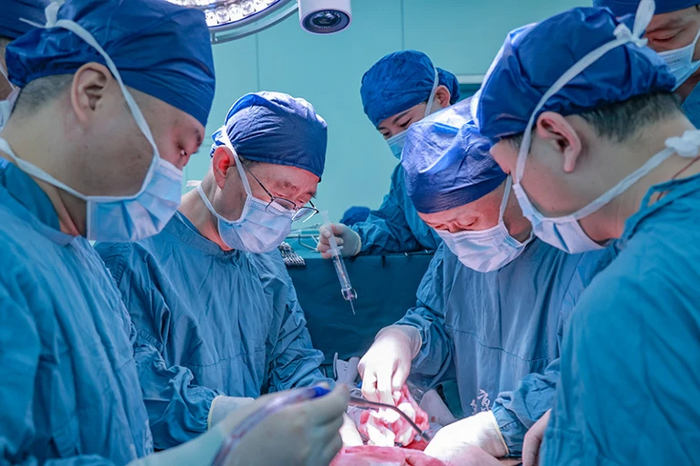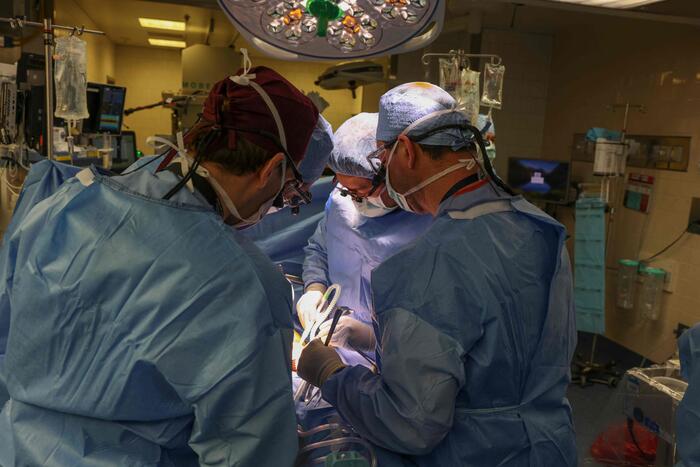Enlarge image
A pig nose in North Rhine-Westphalia: Researchers have restored cells in dead pigs
Photo:
Bernd Thissen / dpa
A touch of the zombie apocalypse is blowing across the Yale campus.
There, researchers have brought dead pigs back to life, at least at the cellular level.
As the researchers published in the journal "Nature", the experiment with a special machine and a liquid produced in the laboratory indicates that cells do not die off as quickly as thought.
In cardiac arrest, the body is "not as dead as previously thought," said Zvonimir Vrselja, one of the study's authors.
The researchers hope that the so-called “OrganEx” technology will lead to advances in human transplantation medicine, among other things.
The lifespan of organs could be extended, which would increase the availability of donor organs.
For the experiment, cardiac arrest was induced in pigs.
After an hour, the treatment began.
To do this, the pigs were connected to a perfusion device that resembles a heart-lung machine.
This was used to feed them an oxygenated liquid made from pig blood and other components.
The mix promotes cell health and suppresses inflammation, it said.
Six hours after treatment, the researchers found that key cellular functions were active in many areas of the pig's body, including the heart, liver and kidneys.
The researchers even found signs of heart activity, even if it hasn't fully recovered.
It's not clear exactly what caused it in the animals, study author David Andrijevic said.
At the cellular and tissue level, the organs of the deceased pigs appeared functional, it said.
There was no brain activity in the pigs throughout the experiment.
Difficult to distinguish from a healthy organ
Under the microscope, it is difficult to distinguish a healthy organ from an organ that has been treated with "OrganEx" technology, Vrselja said.
But there's no telling if the organs are actually working, said study co-author Stephen Latham.
"What we're looking at is the cellular and metabolic level."
Projected onto humans, "OrganEx" could help not only in transplantation medicine, but also in the treatment of organs or tissues that have been damaged due to a lack of blood flow in the event of heart attacks or strokes.
"There are numerous potential applications for this exciting new technology," Latham said.
However, it is still "very far from being used in humans," says Latham.
Until then, ethical questions must also be clarified: The study underlines that death is not a moment, but a process, bioethicist Arthur Caplan from New York University told »Nature«.
The legal definition of death continues to adapt to medical progress.
hba/Reuters













